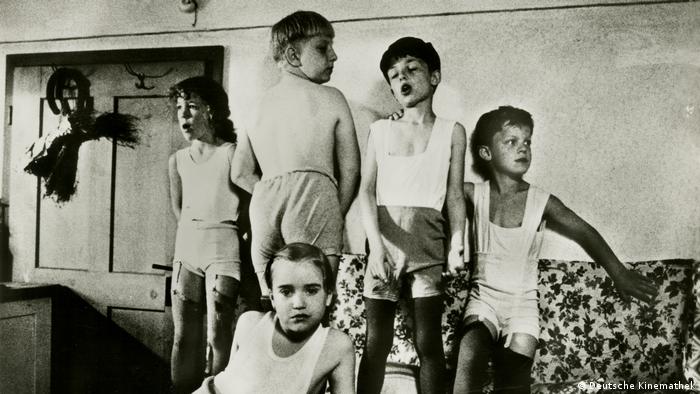“Self-determined. Perspectives of filmmakers” – the title of the major film historical Look at the upcoming Berlinale. The theme of time is absolutely in accordance with and looks in both parts of Germany before 1990.

Films by women, often about women, but not just for women – the cinema of filmmakers working in the period between 1968 and 1999, is the focus of the Berlinale retrospective in 2019. The film’s historical Look, the games, flanked by the current program of the Berlin film festival, fits in the face of the #MeToo debate, or the ongoing discussion about equality in the film industry well in time.
A film look, the look in the FRG and in the GDR
The Berlinale will look in the coming year on your 69. Edition (7.-17.2.2019) on the creativity of the filmmakers in this country – and this relates to both parts of Germany. Both the awakening movement, which began in the Federal Republic after the fall of the year in 1968, as well as the delicate Attempts of the GDR-film bureaucracy in terms of art and freedom of expression to be illuminated.

A pioneer of the West German women’s film: Helke Sander
“Develop was this film-making in the Federal Republic of Germany in the context of the Student*the interior movement of 1968, closely associated with the New women’s movement and the New German Film,” the organizer of the retrospective. In the GDR, however, all films produced within a state-controlled Studio system: “The DEFA offered some Pioneers already in the 1950s, the possibility of the Director, however, mainly in the form of films for children.” From the end of the 1960s, the socialist everyday life is the focus of the film Directors in the GDR.
Reiner Rother: “Great cinematic diversity”
Reiner Rother, head of the retrospective and Artistic Director of the “Deutsche Kinemathek – Museum for Film and television” looks at the theme of the Berlinale-Retro-2019 is a consistent continuation of the earlier film-a historical Look: “‘self-determined’ continues the retrospective ‘Germany, 1966’, in the the career, the beginning of of West German filmmakers, it was documented.” In the years after ’68 in the West and the East is a “great cinematic diversity” emerged: “Stylistically as well as thematically.”

Image enormous: “Peppermint Frieden” from Marianne Rosenbaum from the year 1983
In films from many different Genres. Today as a cult film current Comedy “go For it, baby”, directed by May Spils (FRG 1968, our image above), as well as a documentary that looks at the memoirs of six women who were born before or during the Weimar Republic: “With skin and hair” by Martina Döcker and Crescentia Dünßer (D 1999).
Classic woman’s film, but also some discoveries
Films of known Directors from West Germany, Helma Sanders-Brahms, Jutta Brückner, Marianne Rosenbaum or Ulrike Ottinger. Much of the unknown is likely to be make against the works of the GDR-born filmmakers, such as, for example, Ingrid Reschkes “you Know, Urban?”, the was filmed in 1971.

“Berlin – Prenzlauer Berg. Encounters between the 1. May and 1. July 1990” by Petra Tschörtner
A total of 69 in the retrospective. Berlinale 26 long feature and documentary films, and 20 short and medium-length films will be shown. The next year, Scheid unfolded at the end of Berlinale Director Dieter Kosslick drew attention to the timeliness of the upcoming film show: “thanks to these Activists, including committed filmmakers, such as Helke Sander, Ula Stöckl and Jutta Brückner, the female films self-consciously. The demand for gender equality in the film industry has remained until today.”
jk/suc (Berlinale/Kinemathek)

